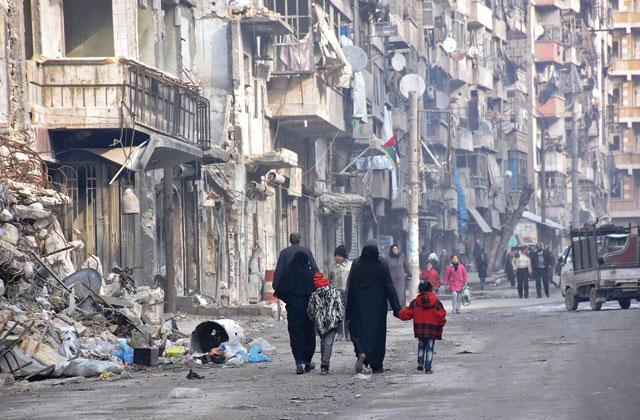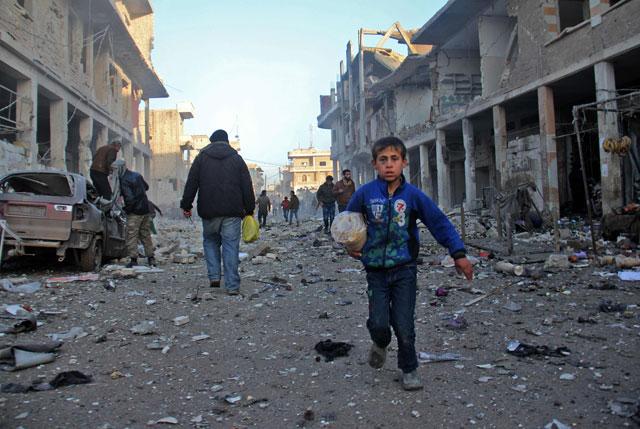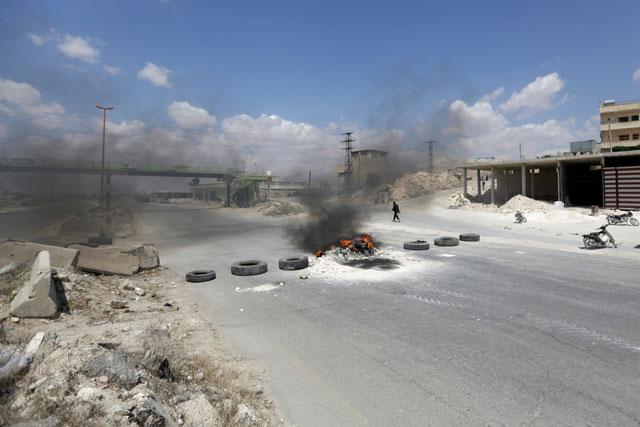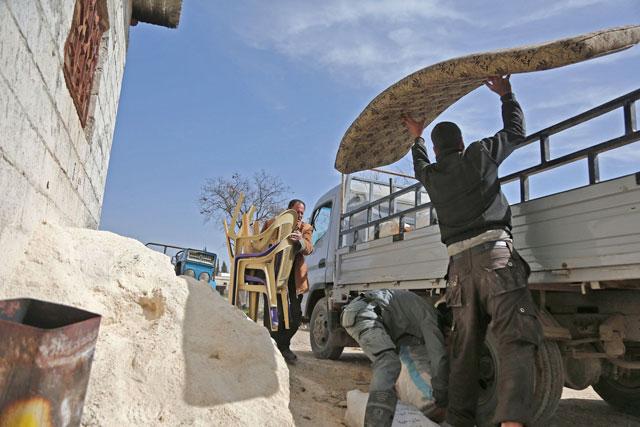You are here
Syria aid still blocked, UN invited to Astana peace talks
By Reuters - Jan 20,2017 - Last updated at Jan 20,2017

Syrians walk along a damaged street in Aleppo’s formerly rebel-held Al Shaar neighbourhood on Wednesday, a month after government forces retook the northern Syrian city from rebel fighters (AFP photo)
GENEVA — UN Syria envoy Staffan de Mistura has been invited to peace talks convened by Russia, Turkey and Iran in the Kazakh capital Astana, his spokeswoman Yara Sharif said on Thursday.
A UN statement said de Mistura himself would lead the UN team in Astana because of the complexity and importance of the issues likely to be raised. The talks are expected to begin on January 23.
De Mistura has said he hopes Astana will support the next round of UN-led talks he plans in Geneva from February 8. Russia's foreign minister has previously dismissed the negotiations in Geneva as "fruitless sitting around".
De Mistura's humanitarian adviser Jan Egeland said Russia, Turkey and Iran had taken on an immense responsibility as guarantors of a process that aimed to enable a new beginning for the civilian population.
Despite a nationwide "cessation of hostilities", aid is still not getting to people who need it the most, and all warring sides routinely do all they can to stop aid getting to women, children and wounded on the other side, he said.
Even if Syria's government approves UN aid plans, humanitarian convoys get blocked by a "complete, hopeless, bureaucratic quagmire" of red tape, Egeland said.
Russia, Iran and Turkey had told a weekly humanitarian meeting in Geneva that they would push all sides, including Syria's government, to stop preventing humanitarian aid from getting through, he added.
The upcoming peace talks were also a chance to save the people of Idlib, a rebel-held town which received 36,000 people evacuated from eastern Aleppo, from another "big storm".
"Idlib would be the symbol of a place that can be saved if this becomes the year of diplomacy, 2017, after six years of failed diplomacy," he said.
The fighting was still "tremendous" in many places, including the Wadi Barada valley near Damascus, and around the desert town of Deir Ezzor, where about 93,000 civilians have been cut off since Sunday after Daesh militants captured the drop zone for humanitarian supplies.
The town has food for a few weeks, and the hospital treating wounded came under fire and had to be moved, Egeland said.
The four besieged towns of Madaya, Zabadani, Foua and Kefraya were now a "disaster" and people were now dying routinely because of the lack of medical attention, he said.
More than 1 million people in Aleppo were without water because a damaged water station was in Daesh hands and inaccessible.
Related Articles
GENEVA — The ceasefire in the Syria war is holding for the most part but humanitarian aid is still not getting through to besieged areas whe
GENEVA — The United Nations will take the "last resort" option of air drops of humanitarian aid if access to besieged areas in Syria is not
GENEVA — A Russian plan for a five-hour pause in fighting in Syria’s Eastern Ghouta needs to be expanded to allow aid deliveries to enter an



















